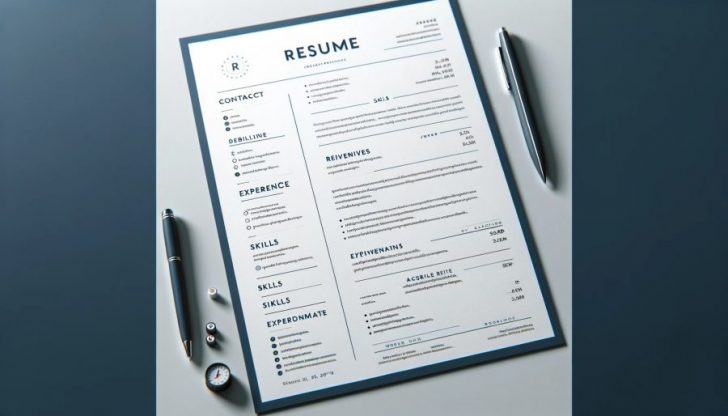When sprucing up your resume, have you ever paused and wondered: "How many bullet points per job on your resume should you include?" It is a common conundrum for job seekers aiming to balance detailed accomplishments with a crisp, readable format.
In this article, we will dive into the art of resume bullet points. This will hep you to not only choose your numbers wisely but also make them impactful.
Why Use Bullet Points on Your Resume?
Bullet points are the backbone of a well-organized resume. They help break down your job responsibilities and achievements into digestible, easy-to-read snippets.

Cotton Bro / Pexels / Bullet points make your resume reader-friendly and attractive. They give the best first impression of your job interview.
But there is a fine line between too few and too many. How do you find that sweet spot?
How Many Bullet Points Per Job on Resume Should You Use?
The general rule of thumb is aiming for 4-6 bullet points per job role. This range is enough to highlight your key responsibilities and achievements without overwhelming the reader. However, the number can vary depending on the depth of your experience and the importance of each position.

FrontStory / Generally speaking, 4-6 bullet points per job role are enough!
However, your most recent job should get the bulk of your attention. Here, you can stretch up to 8 bullet points, especially if this position showcases significant achievements or a steep career progression. These bullet points should be the most detailed, reflecting:
- Major accomplishments with measurable outcomes.
- Skills and technologies you mastered.
- Leadership experiences and project management.
For Older or Less Relevant Positions
As you go back in time on your resume, the number of bullet points should decrease. Older positions might only need 1-2 bullet points, focusing solely on the essentials. This could include:
- Key roles or projects that relate directly to the job you are applying for.
- Major achievements that still hold significance in your career narrative.
How to Craft Effective Bullet Points on Your CV?
Now that we have covered "how many bullet points per job on resume," let’s ensure those bullet points pack a punch. Effective bullet points should be:
- Action-oriented: Start with strong action verbs to convey your contributions clearly.
- Quantifiable: Whenever possible, add numbers to provide context and scale to your achievements.
- Relevant: Tailor your bullet points to align with the job you are applying for. Ideally, focus on transferable skills and experiences.

RDNE / Pexels / While the number of bullet points on your CV is important, the quality of the content within those points is crucial.
Each bullet should offer something valuable to your narrative. Ask yourself if each point is necessary and if it adds to the picture of who you are as a professional.
Adjust Accordingly
Remember, these guidelines are not set in stone. If a particular job in your past does not warrant four bullet points, do not stretch it out just to hit a number. Similarly, if a more minor role taught you a crucial skill relevant to the jobs you are applying for now, give it the bullet points it deserves.
To sum up, it depends largely on your individual experience and the specifics of your career path. Keep it between 4-6 for most roles. But feel free to adjust as necessary to highlight your most pertinent achievements. A well-balanced resume with effectively crafted bullet points can significantly boost your chances of landing an interview.
Remember, your resume is your ambassador. So, make sure it is told in the most compelling way possible!





